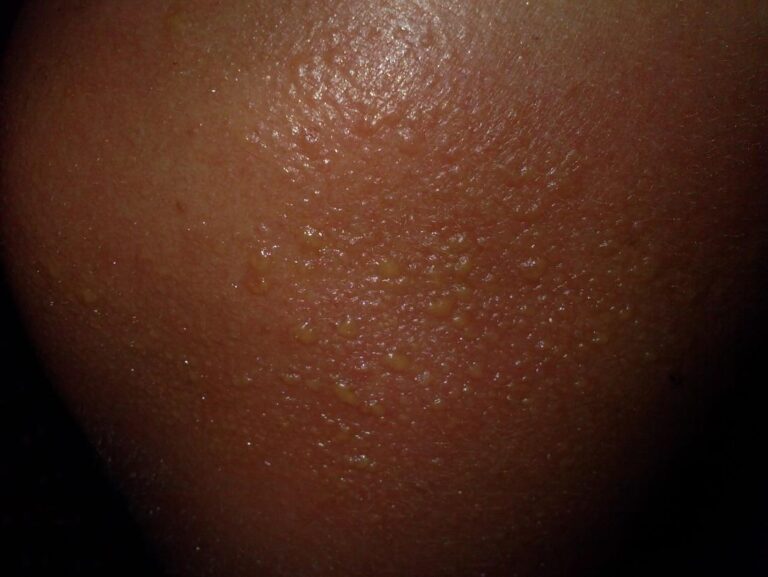Diabetes, high blood pressure, and acne are common among people of color, particularly in African Americans. It is essential to know that some medications taken for these conditions can make your skin sensitive to sunlight. Patients with melanin-rich complexion carry the burden of diseases that require sun protection. They suffer skin damages because certain medications used to treat these conditions make your skin more sensitive to the sun.
Most drugs or medical-induced sun sensitivity cause rapid and severe sunburns, hives, swelling of sun-exposed skin, itchy, scaly skin, and an increased risk to skin cancer; you may also notice changes in your skin’s pigmentation. The reaction may cause hyperpigmentation in individuals with darker skin tone.
Drug-induced sun sensitivity happens when chemicals in medications are exposed to sunlight, producing adverse skin reactions. That means your skin becomes more sensitive to sunlight and gets sunburned more easily. Most reactions are caused by UVA or long-wave sun exposure.
Several common over the counter medicines, including diabetes, hypertension, and acne medications, can make the skin more sensitive to sunlight
Acne is one of the most common conditions for which patients dermatological care. It is estimated to affect 40 to 50 million people in the United States. People with darker skin tone are prone to acne than individuals with fair skin tone. The residual effects are severe in darker skin tones. Most people are not aware that certain medications for acne treatment can make them more sensitive to the sun. If your taking one of these medications, the best way to avoid a skin reaction is to wear sunscreen and limit the amount of time you spend in the sun.
Here are Acne medication that causes sun sensitivity
- Benzoyl Peroxide
- Topical Retinoids. For example, Acitretin and Isotretinoin
- Antibiotics such as Doxycycline are most likely to cause sun sensitivity tetracycline, minocycline, and erythromycin can cause photosensitivity too.
- Isotretinoin– The best treatment available for severe Inflammatory acne is side effects, includes sun sensitivity.
- Alpha Hydroxy Acids (AHAs)
However, acne medications are not the only cause of sun sensitivity. Specific acne treatments like chemical peels, microdermabrasion, and some laser treatments can also increase your skin’s sensitivity to the sun.
The same case applies to hypertension. It is common among people of color. Hypertension medications may increase your sensitivity to the sun, just like specific acne and diabetes drugs.
Hypertension medications that cause sun sensitivity include:
- Amiodarone and quinidine
- Nifedipine and diltiazem(Calcium channel blockers)
- ACE inhibitors Enalapril and Angiotensin Receptors blockers (ARBs) used for hypertension and diabetes. Such as losartan, telmisartan and captopril.
Another common disease among the skin of color is type 2 diabetes. Type 2 diabetes is highly prevalent among people with darker skin tone. An African American individual is more likely to develop type 2 diabetes than that of the US none Hispanic white population. It is estimated that 2.8 million people of color, 13% of this population, have type 2 diabetes. Further, people of color have increased rates of many diabetes complications. If you have diabetes, it is essential to avoid too much sun exposure and sunburn, particularly if you are taking certain medications like:
- Glyburide (DiaBeta, Micronase, and Glynase)
- Glypizide (Glucotrol, Glucotrol XL)
- Glimepiride (Amaryl)
- Sulfonamides for type 2 diabetes
- Diuretics and NSAIDs such as Ibuprofen and celecoxib (Celebrex) and please do not forget the tiny but crucial part of the skin (your lips), use a lip balm that contains SPF.
Protecting your skin from the sun’s rays is always essential, but it becomes even more when the medication your taking causes photosensitivity (sun sensitivity). However, people can still enjoy some time outside and reduce harmful UV ray’s side effects with proper precautions. Here are few tips:
Wear sunscreen every day
Wearing sunscreen is the best thing you can do to protect your skin from the sun. Wear a broad-spectrum sunscreen with an SPF of 30 or higher every single day. Apply your topical acne medication on the first wait for 20 minutes, then follow with your sunscreen over the top. Apply it 30 minutes before going outside and reapply it every two hours.
Using sunscreen every day is a skin-healthy habit, even if your diabetes, acne, and hypertension medication does/does not make your skin sensitive to the sun. These medications require wearing sunscreen if you want to maintain healthy and great-looking skin. Sunscreen also lowers your risk of skin cancer. It is a healthy habit, especially for people with darker skin tone who are more prone to these conditions.
Avoid Sun Exposure Whenever Possible
While using these sun-induced medications that cause sun sensitivity, it is always a great idea to stay out of the sun as much as you can, especially during midday when the UV rays are more vital. However, if you must go outside, take extra precautions. Wear protective clothing, sunglasses, and a wide-brimmed hat. Make sure you reapply your sunscreen every 2 hours.
Do not Use Tanning Beds or Booths
Tanning beds and booths are off-limits when you are using these medications. Tanning beds are just as dangerous as the UV rays from the sun. They can cause sun sensitivity as well. With a bit of care, you can use your medications and keep your skin healthy and sun safe.

